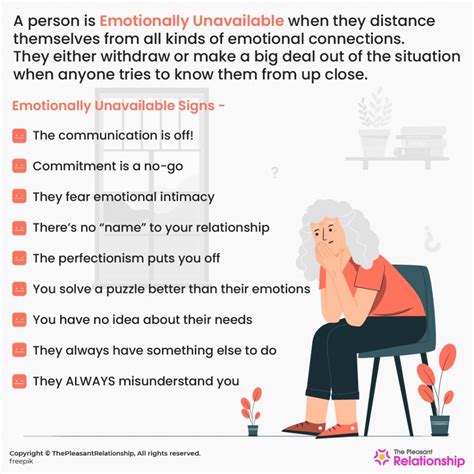
Parental discipline exists on a spectrum, but when does tough love become genuinely harmful? Experts identify 13 behaviors that suggest parents have crossed the line into potentially abusive or emotionally damaging territory, ranging from constant criticism and controlling behavior to neglect and physical harm.
Parenting is inherently challenging, demanding a delicate balance between guidance and autonomy. While strictness is sometimes perceived as necessary for instilling discipline and preparing children for the realities of the world, there is a clear distinction between effective parenting and behaviors that can inflict long-lasting emotional or psychological damage. Recognizing these detrimental behaviors is crucial for both parents and individuals reflecting on their upbringing. According to experts, several telltale signs indicate that parents may have overstepped boundaries and engaged in actions that can be classified as abusive or at least deeply unhealthy.
1. Constant Criticism and Belittling:
One of the most pervasive and damaging behaviors is persistent criticism. While constructive feedback is a valuable tool for growth, incessant negativity can erode a child’s self-esteem and sense of worth. “When a child is constantly criticized, they begin to internalize those negative messages and believe them to be true,” explains Dr. Laura Markham, a parenting expert and author of “Peaceful Parent, Happy Kids.” The article emphasizes that if a child consistently hears they are “not good enough,” “stupid,” or “a disappointment,” it can lead to chronic self-doubt, anxiety, and depression. This relentless negativity stifles their confidence, hindering their ability to take risks and pursue their goals. Instead of fostering growth, constant criticism breeds insecurity and a deep-seated fear of failure.
2. Controlling Behavior and Lack of Autonomy:
Healthy parenting involves gradually granting children more independence as they mature. However, parents who exhibit controlling behavior stifle their child’s ability to develop their own identity and make independent decisions. This can manifest in various ways, such as dictating their child’s friends, activities, and even their career path. The Yahoo Lifestyle article highlights that controlling parents often use guilt or manipulation to enforce their will, leaving the child feeling trapped and suffocated. This lack of autonomy can have long-term consequences, hindering the child’s ability to develop problem-solving skills, assert their needs, and form healthy relationships. Over time, children subjected to excessive control may struggle with decision-making, exhibiting either extreme dependence on others or rebellious defiance.
3. Gaslighting and Denial of Reality:
Gaslighting is a manipulative tactic where a person distorts reality to make someone question their sanity. In a parental context, this can involve denying a child’s experiences, feelings, or perceptions. For example, a parent might dismiss a child’s anger after being unfairly punished, saying, “You’re overreacting” or “That never happened.” Such behavior invalidates the child’s emotions and can lead them to doubt their own judgment. The article points out that gaslighting can have severe psychological consequences, making it difficult for the child to trust their instincts and leading to feelings of confusion, anxiety, and isolation. Over time, victims of gaslighting may develop a distorted sense of reality and struggle to differentiate between truth and falsehood.
4. Emotional Neglect and Unavailability:
While physical needs are often prioritized, emotional neglect can be just as damaging. This involves a parent’s failure to provide emotional support, validation, and affection. Emotionally unavailable parents may be physically present but mentally detached, failing to respond to their child’s emotional needs. “Children need to feel seen, heard, and understood,” notes the article. When parents are consistently dismissive of their child’s feelings or fail to provide comfort during times of distress, it can lead to feelings of loneliness, abandonment, and low self-esteem. The long-term effects of emotional neglect can include difficulty forming attachments, regulating emotions, and developing a strong sense of self.
5. Favoritism and Unequal Treatment:
Treating siblings differently can create a toxic family environment. Favoritism, where one child is consistently favored over others, can lead to feelings of resentment, jealousy, and inadequacy. The unfavored child may feel unloved and undervalued, while the favored child may develop a sense of entitlement. The article explains that unequal treatment can also manifest in other ways, such as providing one child with more opportunities or resources than the others. This can create a sense of unfairness and division within the family, potentially leading to long-term sibling rivalry and strained relationships.
6. Boundary Violations and Lack of Privacy:
Respecting a child’s personal boundaries is essential for fostering a sense of autonomy and self-respect. Parents who consistently violate their child’s privacy, such as reading their diaries, going through their belongings, or eavesdropping on their conversations, are sending the message that their feelings and privacy are not valued. The article emphasizes that boundary violations can erode trust and make the child feel vulnerable and exposed. It can also interfere with their ability to develop a healthy sense of self and establish appropriate boundaries in their future relationships.
7. Using Guilt and Manipulation:
Parents who use guilt or manipulation to control their children are engaging in emotionally abusive behavior. This can involve making the child feel responsible for their parent’s happiness or threatening to withdraw love and affection if the child doesn’t comply with their wishes. The article highlights that manipulative parents often use phrases like, “After everything I’ve done for you…” or “If you really loved me, you would…” to guilt their children into submission. This type of behavior can create a dynamic of fear and obligation, preventing the child from asserting their own needs and desires.
8. Public Shaming and Humiliation:
Disciplining a child in public can be deeply humiliating and damaging to their self-esteem. Public shaming can involve yelling at the child, criticizing them in front of others, or making them the object of ridicule. The article stresses that this type of behavior can be particularly traumatic for children, as it exposes them to the judgment and disapproval of others. Public humiliation can lead to feelings of shame, embarrassment, and social anxiety, potentially impacting their ability to form healthy relationships and participate in social activities.
9. Verbal Abuse and Name-Calling:
Verbal abuse encompasses a range of behaviors, including yelling, screaming, name-calling, and threats. These types of behaviors can be incredibly damaging to a child’s self-esteem and sense of worth. The article emphasizes that words can have a lasting impact, and children who are subjected to verbal abuse may internalize the negative messages and believe them to be true. This can lead to feelings of inadequacy, anxiety, and depression. Over time, verbal abuse can erode a child’s confidence and make them feel unsafe and unloved.
10. Physical Punishment and Violence:
While some parents believe that spanking is an effective form of discipline, research consistently shows that physical punishment can have negative consequences for children’s development. The article explicitly states that hitting, slapping, or any other form of physical violence is unacceptable and can be considered child abuse. Physical punishment can lead to increased aggression, anxiety, and depression. It can also damage the parent-child relationship and teach children that violence is an acceptable way to resolve conflict.
11. Using Children as Confidants or Emotional Spouses:
Children should not be burdened with adult problems or used as emotional confidants. Parents who confide in their children about their marital problems, financial struggles, or other adult issues are placing an inappropriate burden on them. The article highlights that this type of behavior can blur the boundaries between parent and child, making the child feel responsible for the parent’s well-being. This can lead to anxiety, stress, and difficulty developing a healthy sense of self. Children need to feel like they can rely on their parents for support, not the other way around.
12. Addiction and Substance Abuse:
Parental addiction and substance abuse can have devastating consequences for children. Children growing up in homes where substance abuse is present may experience neglect, abuse, and emotional instability. The article emphasizes that addiction can impair a parent’s ability to provide adequate care and support for their children. It can also create a chaotic and unpredictable home environment, leading to anxiety, fear, and trauma for the children. Children of addicts are at a higher risk of developing behavioral problems, mental health issues, and substance abuse problems themselves.
13. Unpredictable and Inconsistent Behavior:
Children thrive in stable and predictable environments. Parents who exhibit unpredictable and inconsistent behavior can create anxiety and confusion for their children. This can involve sudden mood swings, inconsistent rules, or unpredictable reactions to the same behavior. The article highlights that unpredictable behavior can make it difficult for children to feel safe and secure. They may constantly be walking on eggshells, unsure of how their parents will react. This can lead to anxiety, stress, and difficulty forming healthy relationships.
The Yahoo Lifestyle article underscores that recognizing these behaviors is the first step towards addressing the potential harm they can inflict. While not all instances of these behaviors constitute outright abuse, their consistent presence warrants serious consideration and, in some cases, professional intervention. Understanding the impact of these actions can empower individuals to seek help, break unhealthy patterns, and foster healthier relationships with their children or within their own families. The article serves as a guidepost, helping individuals discern between tough love and genuinely detrimental parenting practices.
The Lasting Impact of Detrimental Parenting
The behaviors outlined above can have a profound and lasting impact on a child’s development and well-being. Children who experience these types of parenting practices may struggle with a variety of issues, including:
-
Low self-esteem: Constant criticism, gaslighting, and emotional neglect can erode a child’s sense of worth and make them feel inadequate.
-
Anxiety and depression: Unpredictable behavior, emotional unavailability, and verbal abuse can contribute to anxiety and depression.
-
Difficulty forming relationships: Boundary violations, controlling behavior, and emotional neglect can interfere with a child’s ability to form healthy attachments and trust others.
-
Behavioral problems: Physical punishment, addiction, and inconsistent discipline can lead to behavioral problems, such as aggression, defiance, and substance abuse.
-
Post-traumatic stress disorder (PTSD): Severe abuse, neglect, or witnessing violence can lead to PTSD.
-
Difficulty regulating emotions: Emotional neglect and invalidation can make it difficult for children to regulate their emotions.
-
Identity issues: Controlling behavior and lack of autonomy can hinder a child’s ability to develop their own identity.
Breaking the Cycle: Seeking Help and Healing
It’s important to remember that healing is possible, even after experiencing detrimental parenting practices. Several resources are available to help individuals process their experiences, develop coping mechanisms, and build healthier relationships.
-
Therapy: Therapy can provide a safe and supportive space to explore past traumas, address emotional issues, and develop healthier coping strategies. Cognitive Behavioral Therapy (CBT) and Eye Movement Desensitization and Reprocessing (EMDR) are two types of therapy that can be particularly helpful for individuals who have experienced abuse or neglect.
-
Support groups: Support groups can provide a sense of community and validation. Connecting with others who have had similar experiences can be incredibly helpful in breaking the cycle of isolation and shame.
-
Self-help resources: Many books, articles, and websites offer information and support for individuals who have experienced detrimental parenting practices. These resources can provide valuable insights and tools for healing and growth.
-
Parenting classes: For individuals who are now parents themselves, parenting classes can provide guidance on how to break the cycle of unhealthy parenting and foster healthy relationships with their children.
Recognizing and addressing detrimental parenting practices is a crucial step towards creating healthier families and communities. By understanding the potential impact of these behaviors, individuals can seek help, break unhealthy patterns, and create a more nurturing and supportive environment for themselves and their children.
The Role of Society and Culture
Cultural norms and societal expectations also play a significant role in shaping parenting practices. In some cultures, strict discipline and obedience are highly valued, while in others, a more permissive and child-centered approach is favored. It’s important to recognize that what is considered acceptable parenting behavior can vary widely across cultures and even within different communities.
However, regardless of cultural norms, certain behaviors are universally recognized as harmful and detrimental to a child’s well-being. Physical abuse, emotional neglect, and verbal abuse are never acceptable, regardless of cultural context.
Furthermore, societal factors such as poverty, lack of access to education, and exposure to violence can also contribute to detrimental parenting practices. Parents who are struggling with their own challenges may be less able to provide the care and support that their children need. Addressing these societal factors is essential for creating a more supportive environment for families and preventing detrimental parenting practices.
Legal and Ethical Considerations
In many countries, child abuse and neglect are illegal and can result in serious legal consequences for parents. Child protective services are responsible for investigating allegations of abuse and neglect and taking action to protect children who are at risk.
Even in cases where parenting practices do not meet the legal definition of abuse or neglect, they may still be ethically questionable. Parents have a moral and ethical responsibility to provide their children with a safe, nurturing, and supportive environment. When parents engage in behaviors that are harmful to their children’s well-being, they are violating this responsibility.
The Importance of Self-Reflection for Parents
Becoming a parent is a challenging and transformative experience. It requires a significant amount of self-reflection and a willingness to learn and grow. Parents should regularly evaluate their parenting practices and be open to feedback from others.
It’s also important for parents to be aware of their own emotional triggers and to develop healthy coping mechanisms for managing stress. When parents are able to regulate their own emotions, they are better able to respond to their children’s needs in a calm and supportive manner.
Finally, parents should prioritize self-care and make time for activities that bring them joy and relaxation. When parents are well-rested and emotionally balanced, they are better able to provide the love and support that their children need.
Frequently Asked Questions (FAQ)
1. What is the difference between “tough love” and harmful parenting?
“Tough love” often involves setting firm boundaries and consequences, intending to teach responsibility and resilience. However, it crosses the line into harmful parenting when it involves constant criticism, emotional manipulation, physical punishment, or any behavior that consistently undermines a child’s self-worth and emotional well-being. The key difference lies in the intent and impact: tough love aims to guide and support, while harmful parenting inflicts emotional or physical damage. As noted in the Yahoo Lifestyle article, recognizing patterns of behavior rather than isolated incidents is crucial in distinguishing between the two.
2. If I recognize some of these behaviors in my parents, does that mean they were abusive?
Not necessarily. Experiencing some of these behaviors occasionally doesn’t automatically categorize parenting as abusive. Abuse is typically characterized by a pattern of behavior causing significant harm. It’s essential to consider the frequency, intensity, and overall impact of these actions on your well-being. Some behaviors may be unintentional or stem from the parent’s own unresolved issues. However, if these behaviors consistently led to emotional distress, fear, or feelings of worthlessness, it’s crucial to acknowledge the impact, regardless of intent, and seek support if needed.
3. How can I heal from a childhood with detrimental parenting?
Healing is a process that often involves several steps. Therapy, particularly trauma-informed therapy like CBT or EMDR, can be invaluable. Connecting with support groups or online communities can provide validation and reduce feelings of isolation. Self-help resources, such as books and articles on childhood trauma, can also be helpful. Focus on establishing healthy boundaries, practicing self-compassion, and building supportive relationships. Remember, healing is not linear, and it’s okay to seek professional help.
4. I’m a parent, and I’m worried I might be exhibiting some of these behaviors. What can I do?
Recognizing potentially harmful behaviors is the first step towards positive change. Seek professional guidance from a therapist or parenting coach who can provide personalized support and strategies. Consider taking parenting classes or workshops that focus on positive discipline and effective communication. Practice self-reflection and mindfulness to become more aware of your emotional triggers and reactions. Most importantly, be open to feedback from your children and willing to adjust your parenting approach.
5. How can I support a friend who I suspect is experiencing detrimental parenting?
Offering support requires sensitivity and empathy. Start by listening without judgment and validating their feelings. Let them know you’re concerned and available to help. Avoid directly criticizing their parents, as this can be counterproductive. Instead, focus on providing resources, such as information about therapy or support groups. Encourage them to seek professional help if they’re comfortable doing so. Be patient and understanding, as it may take time for them to acknowledge the situation and seek assistance. It’s important to respect their decisions and boundaries throughout the process.









